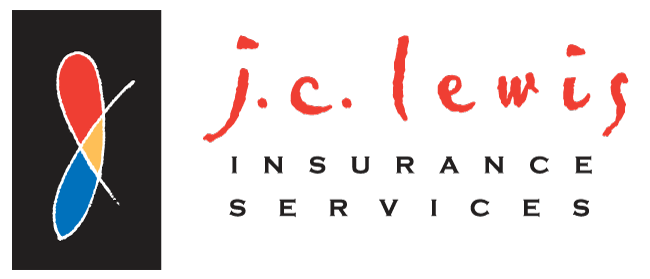It’s no secret that today’s job market is unusually turbulent and difficult to gauge.
The unemployment rate in the United States decreased to a near-record level of just 3.8 percent in March 2022, after rocketing to over 15 percent just two years ago in the wake of the COVID-19 pandemic and crisis. Prior to that event, the national unemployment rate declined steadily from a high of 10 percent at the start of 2010 to just under 3.5 percent in early 2020.
When you consider this rate of less than six million unemployed and the number of 11.3 million job openings on the last business day of February 2022, according to the U.S. Bureau of Labor Statistics, the hiring challenge becomes quite evident.
Hiring and Employee Retention: The Employer Challenge of 2022
One other dynamic has emerged that has served to put employers “on notice” so to speak and that is the so-called “Great Resignation.”
According to Investopedia,
“The Great Resignation describes the higher-than-normal quit rate of American workers that began in the spring of 2021 and continued into the fall as vaccination eased the severity of the COVID-19 pandemic in the United States, the unemployment rate decreased, and job openings increased.”
 There are many theories purporting to explain – or dismiss – this phenomenon, but the anecdotal evidence is certainly unsettling. Scores of employees walking off jobs in concert with fellow employees, restaurants suddenly closing as staff quits without notice, and thousands of remote workers calling it quits.
There are many theories purporting to explain – or dismiss – this phenomenon, but the anecdotal evidence is certainly unsettling. Scores of employees walking off jobs in concert with fellow employees, restaurants suddenly closing as staff quits without notice, and thousands of remote workers calling it quits.
Pew Research Center surveyed workers who left jobs in 2021 and the results are eye-opening.
“Majorities of workers who quit a job in 2021 say low pay (63%), no opportunities for advancement (63%) and feeling disrespected at work (57%) were reasons why they quit… Roughly half say childcare issues were a reason they quit a job (48% among those with a child younger than 18 in the household). A similar share point to a lack of flexibility to choose when they put in their hours (45%) or not having good benefits such as health insurance and paid time off (43%).”
While roughly half of the reasons given were more of a company culture nature, the other reasons were solidly tied to employee benefits.
This is why employers today must consider their employee benefits package in a new light when it comes to attracting and keeping employees. And, for many workers, the bedrock of a great employee benefits package is a comprehensive and affordable health insurance plan.
What Should You Include in Your Employee Benefits Package?
As one source notes, an employee benefits package covers the full scope of services, pay, insurance, vacation time, and other perks available to an employee from his employer. And the elements that make up employee benefits include the more “traditional” items like health insurance benefits to benefits such as:
- Life Insurance
- Dental Insurance
- Paid Vacation Time
- Paid Sick Time
- Paid Holidays
Of course, all employers and businesses differ in their ability to afford various possible perks. But there are several components that, if you can pull it off, can make for a great employee benefits package.
In addition to the benefits listed above it can boost the perceived value of your benefits package offering by including perks such as these:
- 401k Retirement Plan
- Vision Insurance
- Dental insurance
- Employee bonus program
- Flexible Spending Account
- Maternity/Family Medical Leave
When you begin to calculate the various costs involved, keep in mind that studies repeatedly show that upwards of 80 percent of workers say they would prefer new benefits over a pay raise.
For small business employers in states such as California, health insurance presents several challenges and, for many, several questions. As Covered California points out,
“Small business owners with fewer than 50 full-time employees are not required to offer health care coverage to their employees. However, you should know that if a small business with fewer than 50 full-time employees does offer coverage, then that coverage must comply with the requirements of the ACA.”
However, as we’ve seen in this article, just because you are not required to do so, not offering health insurance can create a difficult situation for you as an employer when competing in the current hiring market.
And when it comes to navigating the options and requirements involved with choosing the best health insurance coverage plans to include in your employee benefits, having the guidance of a proven professional can help you avoid costly mistakes.
When You Need to Create a Great Employee Benefits Package, J.C. Lewis Can Help
J.C. Lewis Insurance, a family-owned firm of expert agents, based in Sonoma County, offers individual and small group health insurance plans only from the leading health insurance carriers. Our team knows health insurance and we want to help you build an employee benefits package offering featuring the best in health coverage.
We have decades of experience and are licensed and certified by each of the insurance carriers we work with to offer coverage to individuals, families, and small group employers in California, Arizona, and elsewhere.
In addition to these insurance services, J.C. Lewis also assists with Medicare supplement insurance and prescription drug plans for seniors. For help in finding the right Medicare health or prescription drug plan and finding Medicare providers in your area, call J.C. Lewis Insurance Services.
As a small business ourselves, we have a deep understanding of the needs of business owners and employers, particularly when it comes to employee benefits packages. Let us help you navigate through the health insurance aspects by making a call toll-free at 866-745-9555. We’ll help you understand your options so you can make an informed decision.




